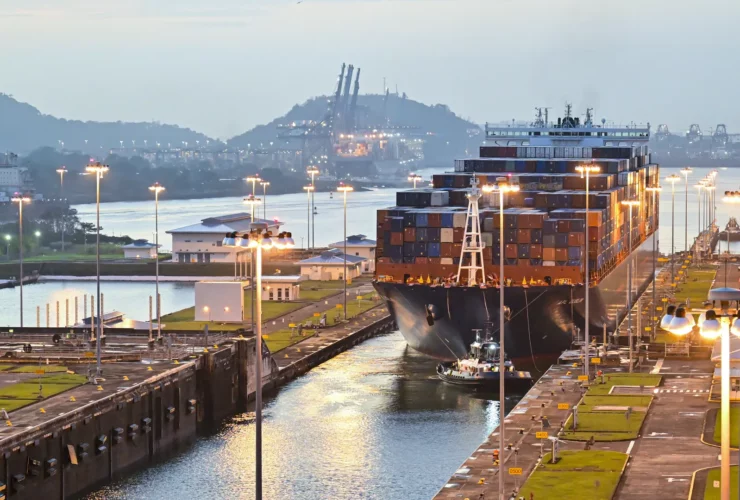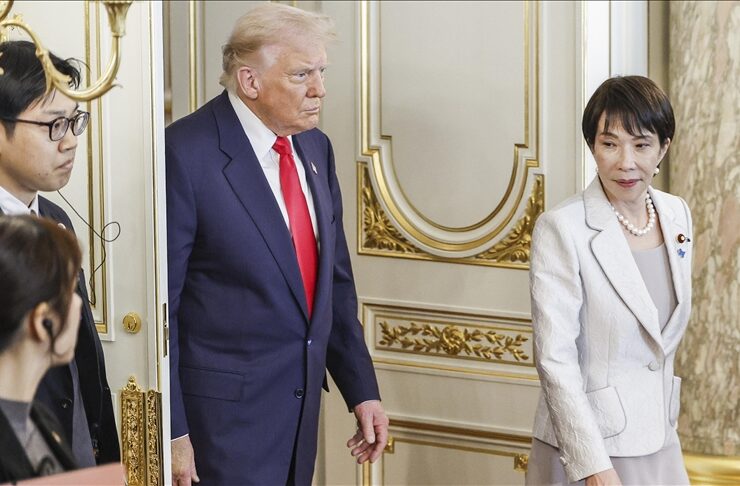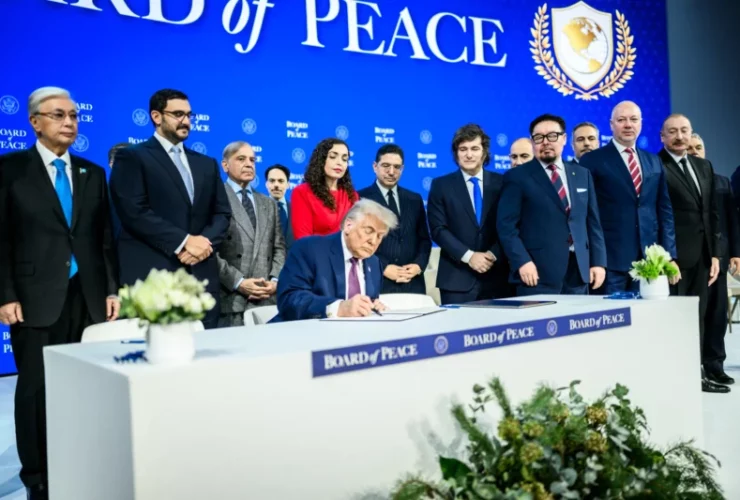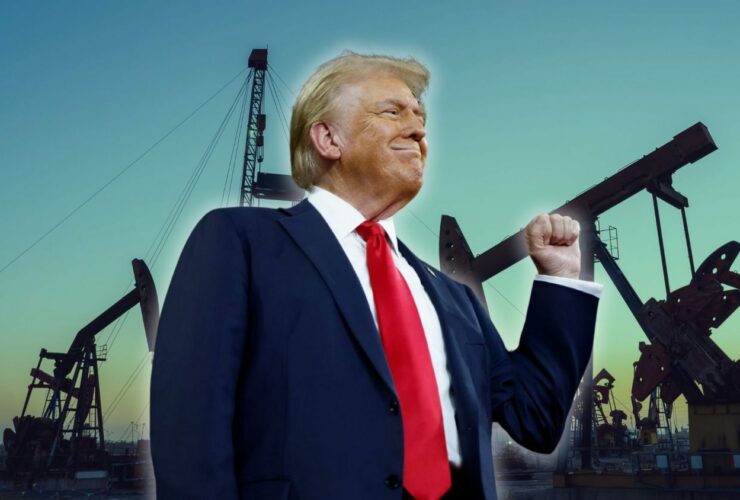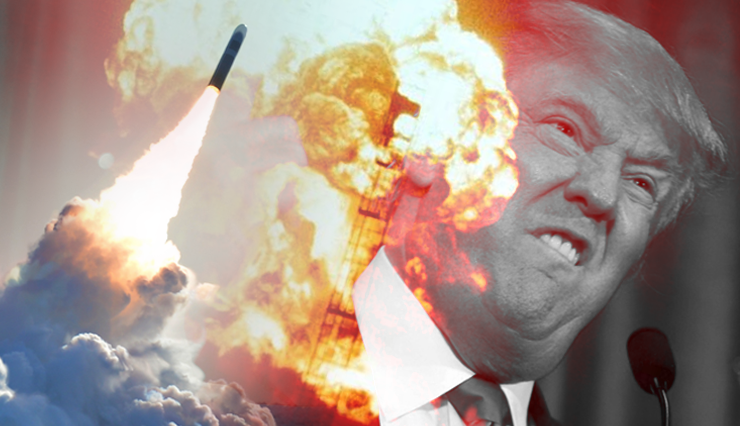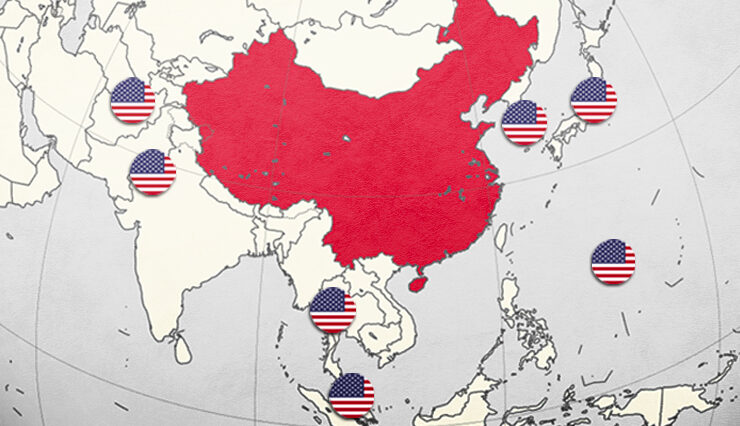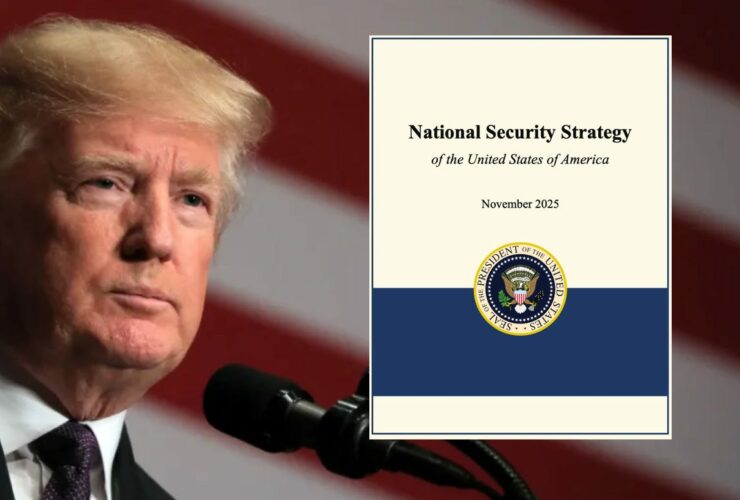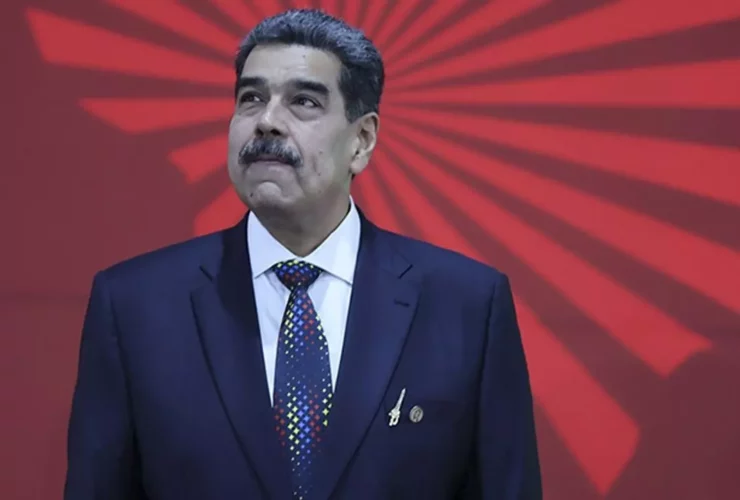A look from Paris on the recent transatlantic tensions. By Odile Mojon-Cheminade The spectacular US aggression against Venezuela in early January, preceded by acts of piracy on the high seas, has opened a new chapter, dangerously bringing the world closer to the abyss. The kidnapping and subsequent detention of a sitting foreign president, carried out under pretenses, demonstrates that everything ...
A Panamanian court changed the administration of the canal. Here’s the background and wider geopolitical context. By Dr. Fernando Esteche The decision by Panama’s Supreme Court to annul the concession that allowed CK Hutchison to operate the Cristóbal and Balboa ports on the Panama Canal represents the culmination of a geopolitical operation executed with surgical precision. The ruling by Panama’s ...
The White House labels Cuba an “unusual and extraordinary threat,” tightening the blockade and regional pressure. By Gabriel Vera Lopes, from Havana / Cuba President Trump signed an executive order this Thursday (29) declaring a “national emergency,” arguing that Cuba represents an alleged “unusual and extraordinary threat” to the security of the United States. The measure imposes new tariffs on ...
The impressions that Washington’s commitments are premised on trade advantage or political alignment undermine the credibility of so-called “free and open Indo-Pacific” strategy. By Mehmer Enes Beşer The U.S.–Japan relationship has been framed for decades as the keystone of stability in East Asia, a union of American military clout and Japanese economic clout. For years, this two-nation coalition has operated ...
Posted by by Latif Bolat 6 Min Read January 28, 2026 These days, the streets of Minneapolis look like a scene straight out of a Clint Eastwood western shot in the deserts of Arizona. Strange-looking, masked ICE agents, who seem to take themselves to all-powerful town sheriffs, are stopping people in the streets, in their homes, and inside shops. Anyone ...
The Republic of Türkiye cannot participate in any structure where another head of state holds final authority. By Serdar Üsküplü, Vice Chairman of the Vatan Party (Türkiye) The entity announced by US President Donald Trump under the guise of a “Peace Council” is an attempt to legitimize American aggression by co-opting other states. It is a move designed to mask ...
If the United States, under Trump, returns to fossil fuel nationalism, it is up to others—Europe, China, ASEAN, and the Global South—to continue the energy transition momentum. By Mehmet Enes Beşer Donald Trump’s unapologetic enthusiasm for fossil fuels is not just a rejection of climate science—it is an intent to remake world energy geopolitics in America’s image. Under the guise ...
This is just the beginning. By Sergio Rodríguez Gelfenstein, from Caracas / Venezuela Many people assume that Donald Trump’s actions are marked by a mental disorder. Trying to confirm this, I investigated the matter and, in an article published in July titled “Is Trump a lunatic or a typical rich kid ecstatic with his perversions?”, I reported on the criminal ...
The fairytale of ‘Free Trade’ By Orçun Göktürk, from Beijing / China A new bill submitted to Congress in the US clearly demonstrates the stage Washington’s containment strategy against China in the Pacific has reached. According to the proposal, the US will negotiate new free trade agreements with Pacific Island countries; it will eliminate tariffs on certain products and deepen ...
The world must prepare itself to face three years of attacks from this Nazi-like, lying, vindictive president. The pace of events is so rapid that it is difficult to keep track of what is happening and to deliberate on its repercussions and consequences. Last week I wrote about the new U.S. National Security Strategy and said that I would continue ...
Ultimately, the supremacist, interventionist, and aggressive nature of imperialism does not change one iota; it is simply being reformulated after 80 years of failure. A document like a country’s “National Security Strategy,” such as the one recently announced by the United States, cannot be based on fiction and deceit. In presenting the document, President Trump resorted to all sorts of ...
Interview to Sputnik Türkiye. UWI author Yunus Soner provided an interview to Sputnik Türkiye on the recent US threats against and the reaction in Venezuela. Below we present the interview as published by Sputnik Türkiye here. Latin America is on the verge of a geopolitical tremor on a scale not seen in many years. The US’s increasing military and political ...








